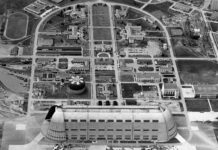France’s Aversion to Coalitions Means Any New Government Risks Early Collapse
In a dramatic turn of events, the political landscape in France is facing significant turmoil as the country grapples with its aversion to forming coalitions. As of today, this topic has surged as the most trending search on Google, reflecting widespread public interest and concern. The latest developments indicate that any new government in France may be at risk of early collapse due to the reluctance of political leaders to engage in coalition-building.
Following a snap election, which took place on July 9, 2024, France has been left with three roughly equal political blocs. This fragmented political scene has led to an unprecedented situation where no single party can form a government without seeking alliances with others. Despite the apparent necessity, French political leaders have shown an unwillingness to compromise or form what they term ‘unnatural alliances.’
Political Standoff and Risks of No-Confidence Motion
The refusal to form coalitions has created a political standoff, with significant implications for the stability of any new government. The Guardian reports that the French government is at risk of facing a no-confidence motion, a parliamentary measure that could lead to the government’s dissolution if it fails to secure the necessary support from lawmakers.
In France, a no-confidence motion can be initiated by opposition parties and requires a majority vote in the National Assembly to pass. If successful, it would force the government to resign, potentially triggering another election. Given the current political climate, the likelihood of such a motion succeeding has increased, as opposition parties may capitalize on the government’s vulnerability and the public’s dissatisfaction with the lack of progress.
Historical Context and Cultural Factors
France’s aversion to coalitions is deeply rooted in its political culture and history. Unlike some other European nations where coalition governments are common, France has traditionally favored strong, singular leadership. This preference can be traced back to the era of Charles de Gaulle, who emphasized the importance of a stable government capable of decisive action. Consequently, French political parties have often resisted forming coalitions, viewing them as a sign of weakness or instability.
This cultural resistance to coalitions poses a significant challenge in the current political scenario. With no party holding a clear majority, the absence of coalition-building efforts could lead to legislative gridlock, hindering the government’s ability to pass crucial laws and policies. This, in turn, could exacerbate public discontent and further destabilize the political environment.
Public Reaction and Expert Opinions
The public reaction to the current political impasse has been mixed. Some citizens express frustration over the lack of cooperation among political leaders, fearing that the ongoing deadlock could impede the country’s progress on important issues such as economic recovery, social reforms, and climate action. Others, however, support the leaders’ stance against forming coalitions, believing that it preserves the integrity and distinctiveness of their preferred parties.
Political analysts and experts have weighed in on the situation, offering various perspectives on the potential outcomes. Jean-Pierre Raffarin, a former French Prime Minister, commented, “The refusal to form coalitions reflects a deep-seated cultural preference for strong, independent leadership. However, in the current fragmented political landscape, this approach may prove unsustainable and counterproductive.”
Meanwhile, political scientist Sophie Meunier noted, “France’s political system is at a crossroads. The reluctance to engage in coalition-building could lead to repeated elections and prolonged instability. It is crucial for political leaders to find a way to collaborate and govern effectively, even if it means forming temporary alliances.”
International Implications
The political uncertainty in France has also caught the attention of the international community. As one of the leading nations in the European Union, France’s stability is vital for the region’s overall political and economic health. Prolonged instability in France could have ripple effects across the EU, potentially affecting trade, security, and diplomatic relations.
European leaders have expressed their concerns over the situation, urging French political parties to find common ground and work towards a stable government. German Chancellor Angela Merkel stated, “A stable and functioning government in France is essential for the European Union. We hope that French leaders will prioritize the country’s interests and find a way to move forward collaboratively.”
Looking Ahead
As France navigates this complex political landscape, the coming weeks and months will be critical in determining the future direction of the country. The possibility of another snap election looms large, especially if the current government fails to secure sufficient support to withstand a no-confidence motion. Political leaders will need to carefully consider their strategies and priorities, balancing their aversion to coalitions with the practical need for governance and stability.
For more detailed information on this topic, you can refer to the original news article on The Guardian’s website: France’s aversion to coalitions means any new government risks early collapse.
This news has been highly trending on Google search today, reflecting the significant public interest and concern surrounding the political developments in France. Stay tuned for further updates as the situation unfolds.


































